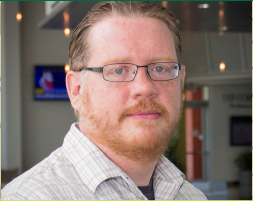Special Session on Identity for Social Good (IDSG) at IJCB2020
 Biometrics have significant application in controlling access to information and information systems. Many of these systems offer a range of social benefits, such as healthcare services, public utilities, and federal welfare, which ensure rights to an adequate standard of living. However, these benefits have not reached communities around the world equitably, leaving some underserved. For example, in developing countries, it is more likely that many people, especially children, will not have any identifying documentation. Approximately 3 out of 4 children under the age of 5 have a registered birth across the world. Conversely, a little less than half of the under 5 population in Sub-Saharan Africa have a registered birth as variations in resources narrow the utility of password-like identifiers (e.g., social security numbers) and physical tokens (e.g., birth certificates). Biometric identifiers could prove vital in ensuring identity for all and for social good to help counter such issues assuming such infrastructure is readily accessible and usable. For instance, fingerprint recognition systems are being explored for infants and toddlers, which could lead to significant improvement in child healthcare and vaccination tracking. The Canadian Down Syndrome Society and Google AI have joined their efforts to improve the understanding of voice input of individuals with Down Syndrome, demonstrating life-changing progress in voice recognition technologies. Tech company IrisGuard has helped 2.5 million refugees gain access to essential resources such as automated teller machines and food purchases. Similarly, IDSG seeks to engage biometric researchers on geographically, socially, and economically relevant innovations in identity management. IDSG solicits novel and impactful research within the scope of IJCB for large scale and sustainable social benefit.
Biometrics have significant application in controlling access to information and information systems. Many of these systems offer a range of social benefits, such as healthcare services, public utilities, and federal welfare, which ensure rights to an adequate standard of living. However, these benefits have not reached communities around the world equitably, leaving some underserved. For example, in developing countries, it is more likely that many people, especially children, will not have any identifying documentation. Approximately 3 out of 4 children under the age of 5 have a registered birth across the world. Conversely, a little less than half of the under 5 population in Sub-Saharan Africa have a registered birth as variations in resources narrow the utility of password-like identifiers (e.g., social security numbers) and physical tokens (e.g., birth certificates). Biometric identifiers could prove vital in ensuring identity for all and for social good to help counter such issues assuming such infrastructure is readily accessible and usable. For instance, fingerprint recognition systems are being explored for infants and toddlers, which could lead to significant improvement in child healthcare and vaccination tracking. The Canadian Down Syndrome Society and Google AI have joined their efforts to improve the understanding of voice input of individuals with Down Syndrome, demonstrating life-changing progress in voice recognition technologies. Tech company IrisGuard has helped 2.5 million refugees gain access to essential resources such as automated teller machines and food purchases. Similarly, IDSG seeks to engage biometric researchers on geographically, socially, and economically relevant innovations in identity management. IDSG solicits novel and impactful research within the scope of IJCB for large scale and sustainable social benefit.
Session Objectives
IDSG has the following objectives:- Foster conversation on how biometric research can have a positive and sustained impact on improving the living conditions of people around the world.
- Highlight new and ongoing research that has demonstrated societal benefit.
- Nurture conversation and collaborative relationships to spark new initiatives within the biometrics professional community that target public interests.
Looking for interdisciplinary collaborators?
Need a collaborator to start or further research aligned with IDSG objectives? Fill out this quick survey. We will compile and release all survey responses to increase researcher visibility and encourage constructive partnerships aimed toward Identity for Social Good.
We will post survey results on a rolling basis. Stay tuned for how to access survey responses.
Call for Papers
IDSG gathers researchers working at the intersection of biometrics and identity science, security, and behavior analysis (among others) to promote meaningful and sustained research on identification and access systems specifically targeting social good and public interests. IDSG invites papers from researchers having close relationships with local and global representatives (e.g., K-12 educators, community stakeholders) and/or interdisciplinary collaborations to maximize research visibility and influence. IDSG aims to expose wide-reaching outcomes that often (but not always) transcend conventional, single discipline research to "solve the grand challenges facing society — energy, water, climate, food, health — [which require] scientists and social scientists [to] work together." Topics of interest include but are not limited to:
- Improving identity management systems in social services (e.g., education, food subsidies, health care, emergency personnel services, employment, subsidized housing)
- Data privacy
- Eliminating bias and discrimination in biometric systems
- Subject diversity in publicly available data
- Accessible and usable biometric systems for vulnerable populations and marginalized groups
- Low resource biometric sensors
Submission Details
All IJCB special sessions will be organized as a separate track in CMT. Authors can choose which special session to submit to by selecting appropriate subject areas (primary only). Final decisions on paper acceptance will be made by IJCB Program Chairs and will take reviewer feedback, quality of the papers and session organizers recommendation into account. Submissions to IDSG should have no substantial overlap with any other paper submitted to IJCB or already published. All persons who have made any substantial contribution to the work should be listed as authors, and all listed authors should have made some substantial contribution to the work. Papers should follow the IJCB conference format (anonymous). Ideally, each submitted paper will receive three reviews. All IJCB special sessions will consist of oral presentations.
Paper submission: July 6th, 2020
Notifications: July 28th, 2020
About the Organizers

Tempestt Neal, Ph.D. is an Assistant Professor and director of the Cyber Identity and Behavior Research Lab in the Computer Science and Engineering Department at the University of South Florida. She received a Ph.D. in computer engineering from the University of Florida. Her research focuses on behavioral biometric authentication for IoT and mobile devices, applications of ubiquitous sensing, and applied machine learning. She was awarded the Delores Auzenne Dissertation Award from the University of Florida and selected as a NSF CyberCorp Fellow for her dissertation work focused on the feasibility of mobile device usage data as a biometric modality. Dr. Neal currently serves as the IEEE Biometrics Council Liaison for IEEE Women in Engineering and Associate Editor for the IEEE Biometrics Council Newsletter. She was the Local Arrangements Chair for the 2019 IEEE International Conference on Biometrics: Theory, Applications and Systems (BTAS) and served as a Session Chair at the 2019 IAPR International Conference on Biometrics (ICB). She is currently co-organizing the First Workshop on Applied Multimodal Affect Recognition to be held at the IEEE International Conference on Automatic Face and Gesture 2020.

Shaun Canavan, Ph.D. received his PhD in Computer Science from Binghamton University. He is an Assistant Professor in the Computer Science and Engineering Department at the University of South Florida. His research focuses on Affective Computing, Human-Computer Interaction, Biometrics and VR/AR. He is a recipient of an AWS Machine Learning Research Award for studying multimodal human emotion analysis using deep neural networks. He has 27 publications in top conferences and journals, as well as has a patent for his invention on estimating hand pointing direction. He was the demo chair for Face and Gesture 2019, and is currently the demo chair for Affective Computing and Intelligent Interaction 2021. He is also serving on multiple technical committees for conferences and journals. He is a co-organizer, with Marvin Andujar, of the Workshop on Ubiquitous Emotion Recognition with Multimodal Mobile Interfaces at UbiComp 2018, and co-organizer, with Drs. Tempestt Neal, Marvin Andujar, and Lijun Yin of the First Workshop on Applied Multimodal Affect Recognition at FG2020.
Program Committee
Sayde King, Computer Science and Engineering, University of South Florida, Tampa, FL
Mohamed Ebraheem, Computer Science and Engineering, University of South Florida, Tampa, FL
Akhil Mathur, Pervasive Sensing Department, Nokia Bell Labs, Cambridge, UK
Kalaivani Sundararajan, Netherlands eScience Institute, Amsterdam, The Netherlands
Ashokkumar Patel, Computer Science, Florida Polytechnic University, Lakeland, FL
Saurabh Hinduja, Computer Science and Engineering, University of South Florida, Tampa, FL
Yong Zhang, Computer Science and Info. Systems, Youngstown State University, Youngstown, OH
Looking for interdisciplinary collaborators?
Need a collaborator to start or further research aligned with IDSG objectives? Fill out this quick survey. We will compile and release all survey responses to increase researcher visibility and encourage constructive partnerships aimed toward Identity for Social Good.